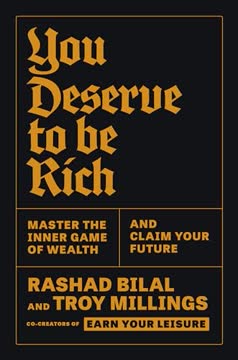Key Takeaways
1. The American Dream Remixed: Your Financial Freedom Defined
For too many people in Black and Brown communities, hard work alone isn’t enough to land a house with a white picket fence or the financial security it symbolizes.
Challenge the narrative. The traditional American Dream often remains out of reach for Black and Brown communities due to systemic discrimination and a lack of access to critical financial knowledge. The Earn Your Leisure (EYL) platform aims to level this playing field by providing tangible, digestible information on building wealth. This isn't just about personal gain; it's an act of resistance against systemic barriers.
Define your freedom. Financial freedom, as remixed by EYL, means having active and residual income that grants you control over your time and allows you to live life on your own terms. This isn't a one-size-fits-all concept; it's about crafting a life that aligns with your unique goals, risk tolerance, and values. It means curating meaningful moments and thriving in ways previous generations couldn't.
The EYL Thesis. The core blueprint for achieving this freedom is simple yet powerful: Increase your income, Lower your expenses, and Invest the difference. This thesis guides every strategy in the book, emphasizing that wealth building is a system of avenues and opportunities, not just hard labor. It's about making your money work harder for you, even when you're not actively working.
2. Master Your Mindset: Vision, Accountability, and Healing Trauma
How you feel about yourself is reflected in your relationship with money.
Vision casting is vital. Achieving financial freedom begins with a clear vision of what you truly want and why. Many people desire to be debt-free or rich but haven't deeply considered what "more" looks like for them. This involves asking specific questions about your wants, needs, and dream life, pushing past the conditioning that labels thinking about money as frivolous.
Confront financial trauma. Our upbringing and experiences profoundly shape our relationship with money, often leading to unhealthy behaviors like hoarding, excessive spending, or emotional shopping. These are often trauma responses to systemic inequality or personal financial instability. Healing involves acknowledging these patterns, seeking help, setting boundaries, and reframing your language around money.
Operate at your highest. This means holding yourself accountable, making intelligent decisions, and striving for self-sufficiency, breathing room, and flexibility. It's about believing your financial dreams are achievable and confronting counterproductive behaviors. This shift in mentality is the inner work necessary to build a fortress around your financial future, turning mistakes into lessons.
3. Budget Like a Boss: The EYL Money Principle
Every rich person has one. Enough said.
Budgeting is non-negotiable. A detailed, well-planned budget is the indispensable roadmap to financial freedom and generational wealth. It's not about restriction, but about intentionality, ensuring every dime and penny works for you. This living document requires regular review and adjustment to stay aligned with your evolving financial goals.
The EYL Equation. Our core budgeting framework allocates your after-tax annual income:
- 15% Saving: For general and emergency funds.
- 55% Spending: For personal, household, and family expenses.
- 10% Sharing: For tithes, donations, and helping loved ones.
- 20% Investing: For wealth building.
This framework is adaptable to individual circumstances, allowing for flexibility based on income stability, living costs, and life stage.
Tackle debt strategically. Before aggressive investing, prioritize tackling high-interest debt (above 10%) using strategies like the snowball method or balance transfers. Simultaneously, leverage automation for bill payments and savings transfers to streamline your finances, save time, and avoid late fees. This creates the crucial "breathing room" needed to pivot towards wealth accumulation.
4. Unlock Wealth: Invest Smart, Not Just Hard
The key to releasing your fear will be finding the right suite of investments for you and your goals.
Why investing matters. Investing is the engine of wealth building, allowing your money to generate more money, supplementing income, and funding major life goals. It's not just for the rich; with as little as $1, you can start building a portfolio through various apps and robo-advisers. The key is to align your investment choices with your short-term, medium-term, and long-term financial objectives.
Know your options. Diversify your portfolio across various asset classes, understanding their risk/return profiles:
- Stocks: Ownership in companies, potential for high growth (e.g., EYL's "Big Six" sectors: Communications, Consumer Discretionary, Financials, Healthcare, Industrials, Information Technology).
- Bonds: Loans to governments/companies, fixed income, lower risk.
- Real Estate: Physical properties (rentals, flipping, land) or REITs (trusts that own commercial real estate).
- Mutual Funds/ETFs: Diversified baskets of investments, good for beginners.
- Business Equity: Investing in or owning a business.
- Commodities/Luxury Goods: Metals, art, high-end items for diversification.
Assess your risk tolerance. Before investing, honestly evaluate your comfort level with potential losses. This isn't just about metrics; it's about your psychological readiness. A conservative investor might favor bonds and cash, while an aggressive one might lean into stocks and real estate. Understanding your risk tolerance ensures you stay committed to your investments, even during market fluctuations.
5. Embrace Entrepreneurship: Build Your Own Kingdom
One income is too close to no income.
The entrepreneurial calling. Entrepreneurship offers freedom, flexibility, and the potential for generational wealth, but it's not for everyone. It demands a clear "why," a well-defined business model (brick-and-mortar, virtual, franchise), and a deep understanding of your market niche. It's a "beautiful struggle" that requires resilience, self-trust, and a willingness to work with what you have.
Strategic growth. Starting small and conducting "test rounds" can validate your business idea and gather crucial feedback before significant investment. Whether it's a cleaning service, vending machines, or a virtual consulting firm, every business needs a solid plan for initial and recurring expenses. Don't confuse a "side hustle" with a legitimate business; treat every income stream with intentionality and professionalism.
Beyond the hustle. As your business grows, be prepared to scale up, which often means implementing corporate structures like separate accounting, retirement plans (401k, IRA), and robust digital marketing strategies (website, social media, communication touchpoints). Crucially, don't be afraid to ask for help or delegate tasks; a wise entrepreneur recognizes their limits and builds a talented team. Remember, tax codes favor business owners, so leverage deductions with professional guidance.
6. Money & Love: Cultivate Financial Maturity in Relationships
At the heart of all these disagreements is a failure to communicate effectively.
Financial maturity is key. Relationships, whether romantic or familial, are profoundly impacted by money. Financial maturity is the ability to openly discuss finances and make sound economic decisions together, recognizing that your financial freedom is interconnected. This means moving past personal financial baggage and addressing disagreements with empathy and a shared vision.
Open communication is paramount. Avoid sweeping money conversations under the rug. Instead, hold regular financial accountability meetings with your partner or family to review budgets, assess progress, and discuss financial goals. This normalizes money talks and builds trust. For couples, this includes discussing financial expectations, establishing banking structures (joint and personal accounts), and exploring tax benefits of joint filing.
Protect your unit. Strategic financial planning in relationships extends to sensitive areas like lending money to family or friends. Establish clear boundaries and a "sharing" budget to avoid overextending yourselves or creating resentment. For married couples, consider a prenuptial agreement to protect assets and future earnings, and align on critical decisions like having children and their upbringing, understanding the significant financial implications.
7. Build a Lasting Legacy: Estate Planning & Philanthropy
Money is immortal; your imprint on this world can be, too.
Plan for the future. Creating generational wealth means ensuring your family's financial well-being long after you're gone. Estate planning is not just for the rich; if you have any assets, you have an estate. This involves designating beneficiaries for accounts, creating a will to outline wishes for assets and minor children, and establishing trusts to protect assets from taxes and probate.
Secure your loved ones. Life insurance is a critical component of estate planning, providing financial protection for your beneficiaries. Aim for coverage of at least ten to twenty times your annual salary. Explore options like group, term, or whole/universal/permanent life insurance, and consider placing policies in an Irrevocable Life Insurance Trust (ILIT) for tax advantages and asset protection. This ensures your legacy is preserved and distributed as intended.
Philanthropy as a pillar. Beyond personal wealth, EYL emphasizes philanthropy as a responsibility for those in a position to help. Incorporate a "sharing" budget into your financial plan to support causes, establish scholarships, or make grants. This not only provides tax relief but also shapes the economic trajectory of your community and instills a model of giving for future generations.
8. Your First Million: Celebrate, Strategize, and Scale
If you can make $1 million once, it will be fairly easy to do it again.
Acknowledge your achievement. Making your first million is a monumental accomplishment, likely a first in your circle. Celebrate this milestone, but do so strategically. Understand that your "million" will be reduced by taxes (roughly 37%), leaving you with a substantial, but not full, amount to work with. This requires a disciplined approach to allocation.
Strategic allocation. Immediately contact a financial adviser to reevaluate your goals and create a comprehensive financial plan for your newfound wealth. Apply the EYL Money Principle to allocate your post-tax funds:
- Saving: $94,500
- Spending: $346,500
- Sharing: $63,000
- Investing: $126,000
Develop a tax strategy to maximize benefits, considering higher tax brackets and investment implications.
Build your money team. You didn't get here alone, and you won't grow alone. Assemble a team of professionals: a mentor, financial planner, accountant, attorney, and assistant. Cultivate a "mentality shift" by protecting your time, evaluating your social circle, being judicious with generosity (offer opportunities, not just handouts), and maintaining discipline across all aspects of your life. Your first "million-dollar flex" should be strategic, potentially purchased through your business for tax benefits, or an investment that appreciates over time.
9. EYL in a Year: Your Blueprint for Accelerated Progress
Creating financial freedom is about doing the work and remaining committed to the process.
Start now, not later. The "EYL in a Year" plan provides a structured, month-by-month blueprint to accelerate your journey to financial freedom, regardless of your starting point. It emphasizes immediate action over procrastination, recognizing that "now" is the only time that matters for economic empowerment. This plan is a commitment to unlocking your highest economic potential.
The annual roadmap:
- Months 1-2: Mindset Work. Dream big, calculate your EYL Baseline, confront financial trauma, and seek professional advice. Implement a "no unnecessary spending" rule.
- Months 3-4: Clean Up & Figure It Out. Eliminate subscriptions, fix credit report errors, find cheaper alternatives for high expenses, and research potential investments. Increase income or secure a raise/side hustle.
- Months 5-8: Work the Plan & Invest! Execute your budget and make your first or expand existing investments. Stay disciplined, even if immediate results aren't visible.
- Month 9: Evaluate! Evaluate! Evaluate! Review progress, adjust goals, and account for major life events. Meet with your financial adviser to assess investment performance.
- Months 10-11: Finish Strong. Plug any holes in your plan, evaluate your financial team, and intensify positive financial habits.
- Month 12: Celebrate & Strategize. Reward yourself for your accomplishments, then immediately begin strategizing for the next phase of your financial plan.
Beyond the year. This annual blueprint is a foundation for a lifelong journey of financial growth. It instills the discipline, knowledge, and proactive mindset needed to continuously increase income, lower expenses, and invest the difference. The goal is to transform your financial future, proving that you are not just a dreamer, but someone with the tenacity to make your dreams a reality.
Last updated:
Review Summary
You Deserve to Be Rich receives positive reviews for its accessible financial advice tailored to Black and Brown communities. Readers appreciate the focus on mindset, financial trauma, and relationship aspects of money. The book covers a wide range of topics, from basic budgeting to advanced investment strategies. Some criticize the emphasis on entrepreneurship and multiple income streams as potentially unrealistic. Overall, reviewers find it comprehensive and valuable for those seeking to improve their financial literacy and build wealth, especially beginners.
Similar Books
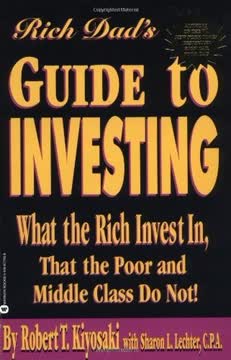
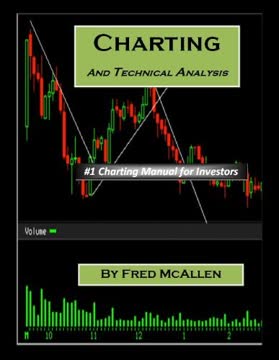
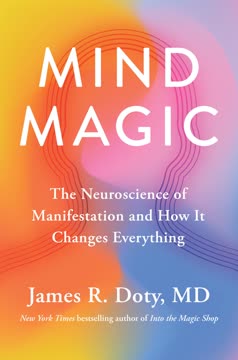

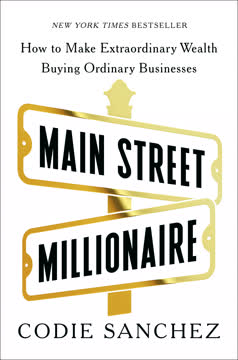
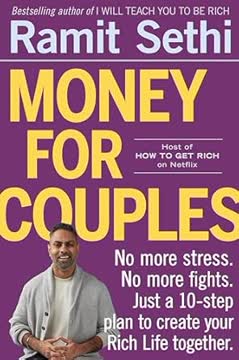

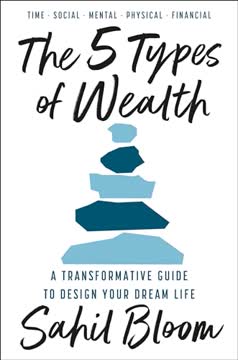
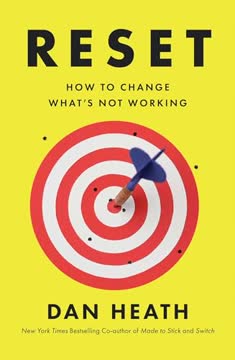
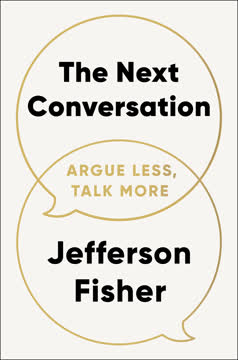
Download PDF
Download EPUB
.epub digital book format is ideal for reading ebooks on phones, tablets, and e-readers.
